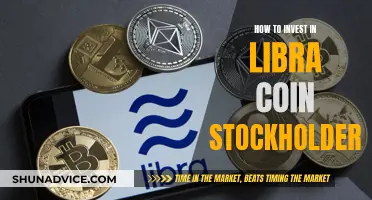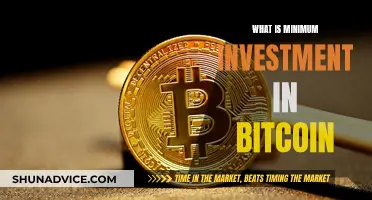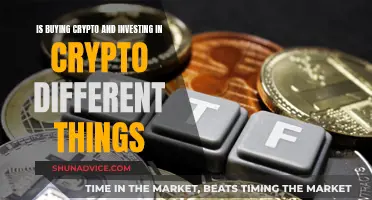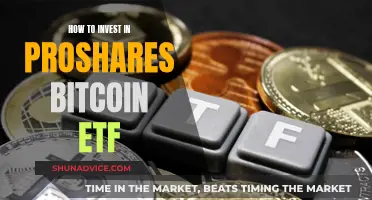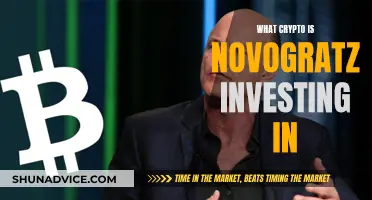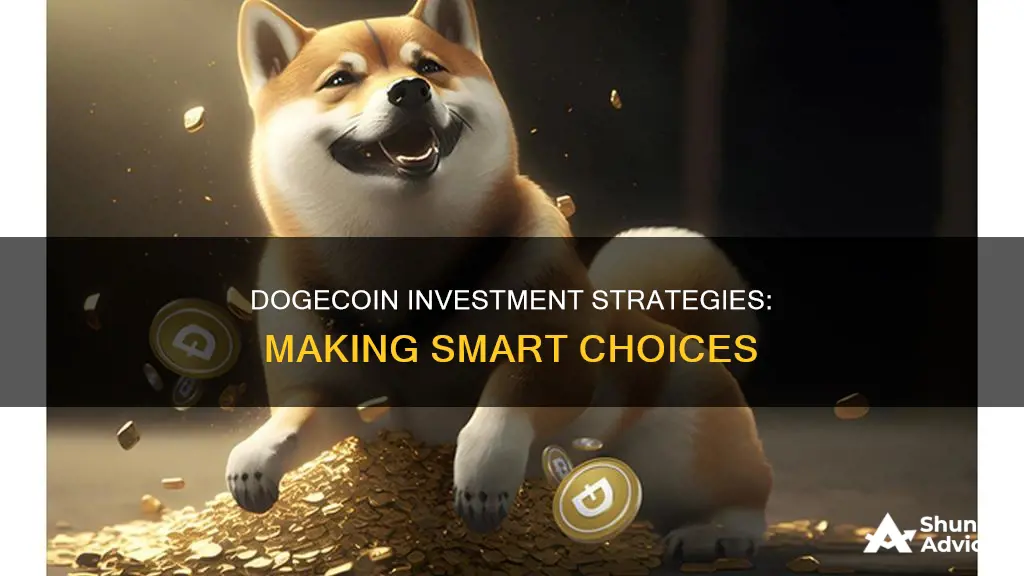
Dogecoin is a cryptocurrency that was initially created as a joke about price speculations in the cryptocurrency market. Despite its satirical origins, Dogecoin has gained significant popularity and a passionate following, becoming the world's biggest memecoin in the first half of 2021.
Investing in Dogecoin can be a risky endeavour due to its high volatility and unlimited supply. However, if you are still interested in investing, there are several steps you should take. First, consider your financial situation and risk tolerance to decide how much you want to invest. Next, choose a cryptocurrency exchange, such as Coinbase, Kraken, or Binance, to open an account and make your purchase. You will then need to select a payment option and deposit money into your account. Finally, place your order for Dogecoin and consider your storage options, such as keeping it in your exchange's crypto wallet or transferring it to a separate hot or cold wallet.
Remember that investing in cryptocurrencies is a risky and speculative endeavour, and it is important to do your due diligence before adding Dogecoin to your investment portfolio.
| Characteristics | Values |
|---|---|
| Investment risk | Very high |
| Long-term investment potential | Poor |
| Short-term investment potential | Good |
| Volatility | High |
| Affordability | High |
| Transaction costs | Low |
| Transaction speed | Fast |
| Supply | Unlimited |
| Investment advice | 3% to 10% of your portfolio |
What You'll Learn

How to buy Dogecoin
Dogecoin is a cryptocurrency that was initially created as a joke, poking fun at the wild speculation in the crypto market. However, it has since gained popularity and is now taken more seriously by investors. Here is a step-by-step guide on how to buy Dogecoin:
Step 1: Consider how much you want to invest in Dogecoin
Dogecoin is subject to high volatility due to its unlimited supply. Its price is dependent on continuous purchases by investors, as an increasing supply of Dogecoin in the market diminishes the value of the coins in circulation. Therefore, it is crucial to invest with caution and consider your overall financial situation, investment portfolio, and risk tolerance.
Step 2: Decide on a cryptocurrency exchange
To purchase Dogecoin, you need to open an account with a cryptocurrency exchange, such as Coinbase, Kraken, or Binance. These platforms allow buyers and sellers to meet and exchange cryptocurrency for dollars. Alternatively, you can use beginner-friendly investment apps like Robinhood. Ensure that the platform you choose offers Dogecoin, as it is not available on all crypto exchanges.
Step 3: Select a payment option
Before trading, you must deposit money into your exchange or brokerage account. Most exchanges accept deposits from checking or savings accounts, while some also allow wire transfers and PayPal transfers. Typically, you can instantly access a portion of the deposited money for trading, but larger amounts may take a few days to clear. A few exchanges also let you use a credit card to buy Dogecoin, but this method often incurs higher fees and is generally discouraged by experts.
Step 4: Place your order for Dogecoin
Once your funds are in your account, you can purchase Dogecoin. Search for Dogecoin or enter its ticker symbol, DOGE, on the exchange's trading platform. Then, specify the dollar amount you wish to invest or the number of Dogecoins you want to buy. Your order should go through immediately, as Dogecoin can be traded 24 hours a day, seven days a week.
Step 5: Consider your storage options
By default, your Dogecoin will be stored in the crypto exchange's or brokerage's crypto wallet. However, some investors prefer to transfer their crypto to separate crypto wallets for added security. You can choose between hot wallets, which are digital and constantly connected to the internet, and cold wallets, which are physical hardware that can be disconnected from the internet, making them less susceptible to hacking. Cold wallets are generally more expensive and carry the risk of losing access to your crypto if you forget your password.
Additional Considerations:
If you decide to sell your Dogecoin, the process is straightforward. You can go to your holdings on your crypto exchange or brokerage platform and enter the amount you wish to sell. Remember that any profits from investing in Dogecoin are subject to capital gains tax, so ensure you pay the appropriate taxes to avoid substantial issues and penalties.
It is important to note that Dogecoin is a risky and highly volatile investment. Before investing, ensure that you are in a strong financial position and can afford to lose money. It is generally recommended that risky assets like Dogecoin comprise no more than 10% of your investment portfolio.
Govt ID: A Necessary Evil for Bitcoin Investment?
You may want to see also

Dogecoin's pros and cons
Dogecoin Pros and Cons
Dogecoin is a risky and volatile investment, so it's important to understand its pros and cons before deciding whether to invest. Here are some key points to consider:
Pros
- Dogecoin has a fun factor that adds entertainment value to investment portfolios.
- It has a growing community of holders and supporters, which makes it a suitable medium for exchange.
- Dogecoin can be easily transacted and traded on decentralised exchanges, including the Ren project, which enables it to work on the Ethereum blockchain.
- It has no mining limits, providing investors with unlimited opportunities for short-term or long-term investment.
- Dogecoin has a relatively easy mining process and has been used for humanitarian work, attracting crypto enthusiasts.
- Day trading Dogecoin can be profitable due to its volatility, allowing investors to capitalise on small price changes.
- Dogecoin has a strong social media presence, with fans across platforms like Reddit, WallStreetBets, Twitter, and Facebook. Monitoring these feeds can provide insights into the direction of Dogecoin's price.
- Elon Musk's positive comments and support for Dogecoin have sparked interest and led to its listing on major exchanges.
- Dogecoin has a humanitarian and friendly feel, having been used for fundraising and sponsorship.
- Dogecoin is infinitely mineable, with no limit to its supply, making it accessible to anyone who wants to purchase it.
- Dogecoin scales relatively faster than Bitcoin, which could aid its adoption as a transactional currency.
- Dogecoin has benefited from mainstream partnerships, such as with COVCARE and the Dallas Mavericks, adding legitimacy and credibility.
- Dogecoin is based on its cultural value and has gained traction due to its meme-inspired nature, attracting many unsophisticated investors.
Cons
- Dogecoin is highly volatile and risky, with a history of extreme price fluctuations driven by social media movements and hype.
- It has a poor track record of price performance compared to other cryptocurrencies like Bitcoin.
- Dogecoin relies more on its fun nature than on any real innovation, which may hinder its integration and adoption as a digital asset.
- There are questions about the leadership's belief in Dogecoin, as one of its co-founders sold all his holdings in 2015.
- Dogecoin is associated with pump-and-dump schemes, where a group of people manipulate the price by buying a large number of coins and then selling them at a higher price, causing losses for long-term investors.
- Dogecoin is not the top transactional currency, as it can only be used as a digital currency, unlike other cryptocurrencies with more transactional significance.
- Dogecoin relies heavily on Elon Musk's comments to drive its price, which may not be sustainable in the long term.
- Dogecoin has relatively poor technical support, and there have been no technological updates since 2015.
- Dogecoin's infinite mineability and lack of a supply cap make it an unideal asset to hedge against inflation.
- Dogecoin's inflationary status and unique mining features may not appeal to all investors.
The Next Bitcoin: Top Contenders for Your Investment
You may want to see also

Dogecoin's history
Dogecoin was created in late 2013 by software engineers Billy Markus and Jackson Palmer, who were working at IBM and Adobe Systems, respectively. It was conceived as a joke, poking fun at the wild speculation in cryptocurrencies at the time. Dogecoin was based on a popular meme featuring a Shiba Inu dog, and its creators wanted to create a peer-to-peer digital currency that could reach a broader demographic than Bitcoin.
Within the first 30 days of its launch, Dogecoin.com had over a million visitors, and its market value reached $8 million. The Dogecoin community has also been responsible for various fundraising events, such as raising $50,000 to send the Jamaican Bobsled Team to the 2014 Winter Olympics and $30,000 to build clean-water wells in Kenya.
Dogecoin has experienced significant price volatility since its creation. In 2014, Dogecoin's trading volume briefly surpassed that of all other cryptocurrencies combined, and in 2017, its price briefly reached a peak of $0.017. In 2021, Dogecoin saw another surge, reaching an all-time high of $0.7376, with its market capitalization approaching $50 billion. This surge has been attributed to various factors, including the influence of Elon Musk, social media platforms, and increased access to trading by younger generations.
Despite its satirical nature, Dogecoin is considered a legitimate investment prospect by some. However, it is important to note that Dogecoin is highly inflationary by design due to its unlimited supply, making it less suitable as a long-term investment compared to other cryptocurrencies.
Understanding Bitcoin Investment Income Tax Requirements
You may want to see also

Dogecoin's community
Dogecoin has a passionate community of supporters, known as "Shibes". The Dogecoin community has a history of supporting charitable causes and individuals. For example, in 2014, the Dogecoin community completed several successful fundraisers, including raising $30,000 to help send the Jamaican bobsled team to the Winter Olympics, $50,000 to build water wells in Kenya, and $55,000 to sponsor NASCAR driver Josh Wise.
The Ultimate Guide to Investing in Bitcoin
You may want to see also

Dogecoin's future
Dogecoin has a strong community and has gained mainstream acceptance, with some merchants accepting it as a form of payment. It also has a fast transaction speed and low transaction fees, making it attractive for micro-transactions. Additionally, the Dogecoin community has been involved in several charitable initiatives.
However, Dogecoin has unlimited supply, which means that its value depends on investors continually buying more coins. This is in contrast to other cryptocurrencies like Bitcoin, which have caps on the number of coins issued, creating scarcity and helping to retain value. Dogecoin is also highly speculative and has been referred to as a "meme" cryptocurrency, with its value driven largely by social media movements and hype.
When considering investing in Dogecoin, it is important to remember that it is a risky and volatile asset. Experts recommend that risky assets like cryptocurrencies should make up no more than 10% of your investment portfolio. It is also crucial to do your due diligence and carefully consider your financial situation, risk tolerance, and investment goals before investing in Dogecoin or any other cryptocurrency.
The Ultimate Guide: Investing in Bitcoin in South Africa
You may want to see also
Frequently asked questions
The simplest way to buy Dogecoin is on a cryptocurrency exchange, where you can buy tokens with US dollars or other digital assets. Popular exchanges include Coinbase, Kraken, Binance, and Robinhood.
Dogecoin is a risky and volatile investment. It is considered a short-term, speculative investment due to its extreme price fluctuations. There is also a high risk of loss, as its value is largely driven by social media movements and hype.
Once you've purchased Dogecoin, you have a few options for storing it. You can keep it in your exchange's or brokerage's crypto wallet, or you can transfer it to a separate hot or cold crypto wallet. Hot wallets are digital and connected to the internet, while cold wallets are physical hardware that can be disconnected from the internet for added security.


